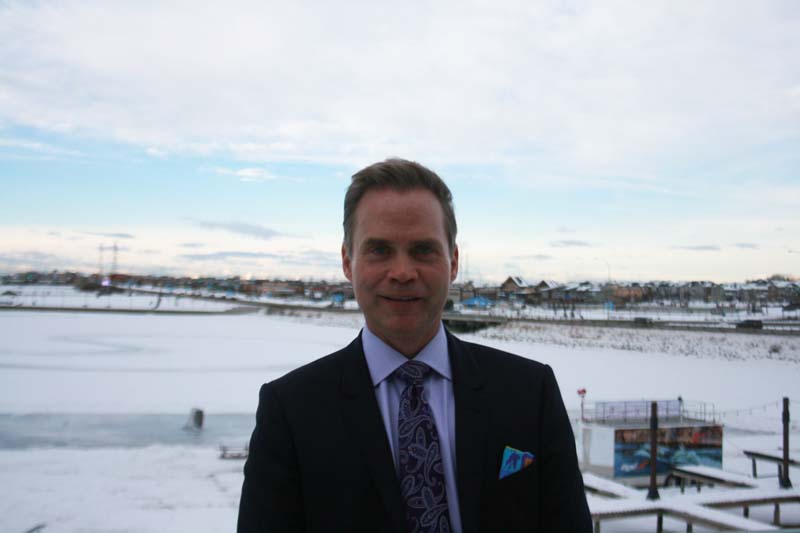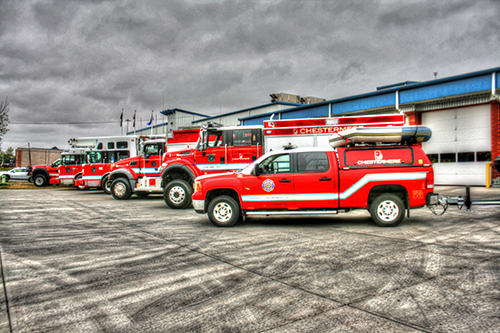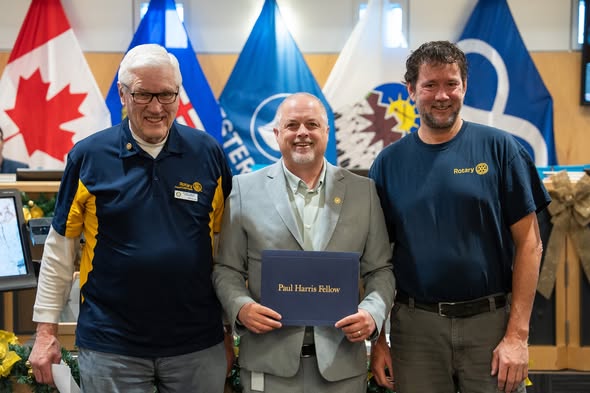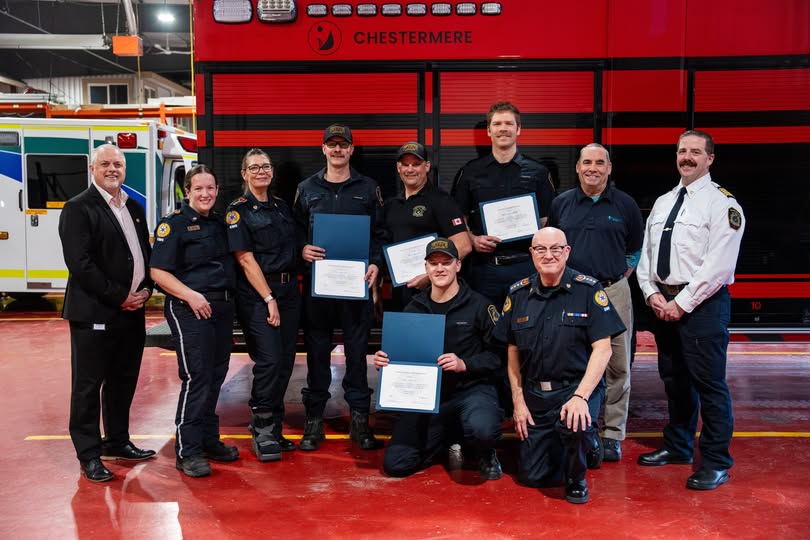
The Alberta economy seems to be taking centre stage in everyone’s minds. Conversations surrounding the job loss, the falling value of the loonie, property values….it’s sometimes hard to think that all of those pieces of the Alberta way of life, along with many more, all revolve around the price of oil. In a recent presentation on January 13th by ATB Financials Chief Economist Todd Hirsch to the Chestermere Chamber of Commerce, several important topics were discussed – including the desperate need to diversify Alberta’s economy.
For over 20 years, Todd has worked as an economist at numerous organizations including the Canadian Pacific Railway, the Canada West Foundation and the Bank of Canada. For almost a decade, Todd taught economics at the University of Calgary. He released his first book, The Boiling Frog Dilemma: Saving Canada from Economic Decline in 2012. Todd provides economic commentary for many Canadian media outlets and is a regular columnist for the Globe and Mail. He currently serves on the University of Calgary Board of Governors and is the chair of the Calgary Arts Academy. Todd recently received the University of Alberta’s Alumni Honour Award.
In an informative and down to earth presentation, Hirsch discussed the odds of what is likely and unlikely to happen to the Alberta economy, it rang true that we’re in trouble. With first discussing the price of oil, Hirsch says that he believes the best price for oil to be selling at is $70/barrel but that he believes that a year from now, we will only be recovered to around $50/barrel. “When oil was sitting at $100 a barrel and if it would have continued to climb, sure there would be a lot of happy people but there needs to be stability in industries. $50 per barrel is enough to bring investment but keep things level”, said Hirsch who also predicted that we could see the price of oil continue to drop before it gets better and that an increase in price isn’t likely until the end of 2016.
Hirsch’s presentation was done so in the fashion of Las Vegas gambling odds because when these conversations about our economy are happening, you often hear “what are the odds of____?’ or ‘what are the chances that _____?’.
During his discussion on oil prices, Hirsh broke it down like this:
75:1 odds that one year from now the price of oil is back up to $80/barrel
20:1 odds that one year from now the price of oil is a staggering $20/barrel
3:1 odds that one year from now the price of oil has recovered to $50/barrel
Hirsch then went on to say that the Alberta economy is hanging in the balance based on what happens to the Chinese market. He discussed the possibility of a Chinese market collapse to the tune of what North America saw in 2008/2009 and put the odds of that happening in 2016 at 6:1. “That’s basically the roll of the dice and I don’t know that I want to think that the Chinese economy could free fall”.
Next he moved onto the odds of an interest rate increase by the Bank of Canada which Hirsch put at 15:1. “Even if we were to see the Bank of Canada raise interest rates, I think it would be towards the very end of the year – certainly not in the first half of 2016 and it’s more likely they will lower rates. This is both good news and bad news. It’s great news for those borrowers and people on variable rate mortgages. Lousy news for savers and investors”.
The labour market was the next topic of conversation and how it was going to fair this year given the price of oil and the value of the Canadian dollar. Hirsch asked the question of what were the odds that the unemployment rate in Alberta reaching 8% or higher, which has not been seen in Alberta since 1993. In January 2015 the unemployment rate in Alberta was 4% and in December 2015 it was at a shocking 7%, however, even with that being said, Hirsch gives the odds at 4:1 against the unemployment rate hitting 8% of higher in our province in 2016. “It certainly could increase over 8% or higher, but why I think it won’t is that there are other sectors that are finding some really nice resumes coming through the door, the problem is that they are usually lower paying jobs than those oil and gas jobs. I do suspect that Alberta’s employment rate will rise, and especially in the first half of 2016”.
With the loss of jobs also means that many Albertans will be considering leaving our province looking for work elsewhere. Hirsch discussed this saying that Alberta typically is the ‘net recipient’ of people moving here looking for work and states that Alberta has a significantly higher population growth over other provinces, which we here in Chestermere fully understand given the growth of our own community. “2016 I do believe that we will see some net out migration but I don’t think it’s going to be a stampede of people leaving the Province – not like it was in the 1980’s. 2016 is different in that there aren’t that many other Provinces that are doing that much better or having a big boom of employment opportunities right now. The only other Province that I see doing well is British Columbia. They’re still not booming like we’re used to seeing here in Alberta, but they’re doing well”. So he gave that 2:1 odds that one out migration will occur during the first half of the year, stabilizing and maybe returning a little more in the positive in the second half of 2016.
The housing market is also interesting in Chestermere as when neighbouring municipalities are seeing a drop in house prices or strong fluctuations in buying and selling, Chestermere tends to stick pretty even. Hirsch spoke to the odds of a housing market downturn saying that there is such a diversity in markets throughout our province that it is often hard to make those comparisons. “The odds of a housing market downturn of 5% – 10% is about 3:1 –in other words, not the most likely scenario but pretty decent odds”. Hirsch went on to say that taking it a step further, he would put the odds at 7:1 that there is a housing market downturn of more than 20% in 2016.
Economic diversification, a buzz phrase that was used highly during the recent provincial election in Alberta, came into discussion and Hirsch referred to it as ‘the holy grail to policy makers’. Hirsch put the odds of Alberta increasing its diversification economically by saying, “In a year from now, and this may come as a surprise, I say 1:1 and believe that it’s almost a certainty that we will see more economic diversification in Alberta”.
Chestermere –Rocky View MLA, Leela Aheer, spoke heavily about diversifying Alberta’s economy during her campaign. She commented, “I thought this was an interesting way for Mr. Hirsch to interpret the devastating economic downturn Alberta finds itself in presently. At a time when Alberta is losing capital investment and talent to every other jurisdiction, it is hard to imagine how diversification is the only answer to our failing economy under these very stressful circumstances. Nine short months ago we could not have predicted where we are today, and Mr. Hirsch eloquently spoke of how his numbers are like hedging a bet. The truth is we already have a diversified economy, and when we talk about diversification we should be talking about building on our strengths. Strengths such as communications, logistics, energy technology, fabrication and custom food and forest products. The list goes on and on. Why have people been moving here? Economic opportunity. What creates economic opportunity? A stable predictable investment climate, fair taxes, and supports such as accessible locally based health care. So the question is how do you continue to diversify under current circumstances? Albertans are resilient but this does not happen overnight. We must be careful to recognize that energy and other resource industries are a reality here in Alberta. You cannot command diversification. We have to look at what are we already good at and expand on that. Value added must truly add value, not just take from one sector of the economy to give to another. We need a competitive, predictable, stable investment climate to attract capital. This creates employment, attracts talent, allows people to accumulate wealth, and sustains social programs. We need a common sense approach and moderate government”.
Hirsch wrapped up his presentation making the comparison between the recession and a forest fire. “No one likes forest fires. They use to quickly work to put them out. But now, forest management and the science around forestry is that a forest fire is actually a normal part of the life cycle of the forest. You have to let forest fires happen to rejuvenate the new forest that’s going to come next. In a lot of ways, that forest fire is a good metaphor for a recession. No one likes to see it happen. It’s tragic, violent and destructive but during the fire in those forests, the pine cones of entrepreneurism – those seeds will crack open and we need the fire and the heat to crack open the pine cones – to have a new forest. I think that is what 2016 and 2017 is going to feel like. It is going to feel like a forest fire but there is hope because it is part of the natural life cycle of an economy”.
When we take all of odds and projections for 2016 and bring it all closer to home, what does all of this mean to Chestermere? Well, home builders are reporting that the higher level ‘estate’ homes are becoming increasingly popular, realtors have not seen a slowdown and even city projects and infrastructure developments are staying on pace.
Of course, a weak economy always has its social impacts. The Chestermere Regional Food Bank reports, “We are certainly expecting to see an increase in clients at the food bank in the coming year. We have steadily seen an increase month-to-month over the past 8 years and don’t expect that to change, especially considering the current economic situation. It often takes longer than you’d expect, though, to see the increase from job loss in the community. Many people run through their savings and any severance pay received before they access the food bank. We see new clients every week and we see old clients leave us which can be very encouraging. That’s what the food bank is for. We help clients to bridge the gap between what they have and what they need. This is a temporary hand up to help our clients get back on their feet. We have clients that access the food bank one time after a job loss and then never again. We also have clients that use the food bank longer term when they’re unable to return to work”.
At a slightly broader look at what is being seen in the Chestermere-Rocky View area during this economic downturn, Aheer said, “We are seeing our biggest asset, our people, questioning whether to stay in our province or sell their homes and leave to find a better situation. Telling them to move to BC is not particularly helpful. We are losing investment capital, and along with that the great talent that exists in our province. As a result our local small businesses such as restaurants, oil field services, hair dressers, and others are suffering as a result. We as a province have seen these cycles before. The difference now is our current government gives lukewarm support to our resource industries and the talented people working in them. They are not “embarrassing cousins” to quote the Premier. They are the engine that drives our prosperity. Investors hate uncertainty, and this is proving to have a devastating impact on the wellbeing of our citizens. Capital and talent are mobile, and will leave if they feel unwelcome. The Carbon Tax, increased minimum wage, increased corporate taxes and anti-oil lobbyists at the highest levels of our government are grinding our constituents down. We need market access for our products. We need pipelines to tide water. We need to stay competitive in the world market. We need government to stand up and be proud of this great province and have environmental stewardship and responsible development of our immense resources work hand in hand and not against each other. This is what I see and hear every day”.
With just being into the first few weeks of the new year, it is anyone’s guess as to where we as a province will be in a year from now, but Hirsch wrapped up his presentation saying, “2016 needs to be the year that Albertan’s decide we’re taking our destiny into our own hands rather than letting the world happen to us”.








